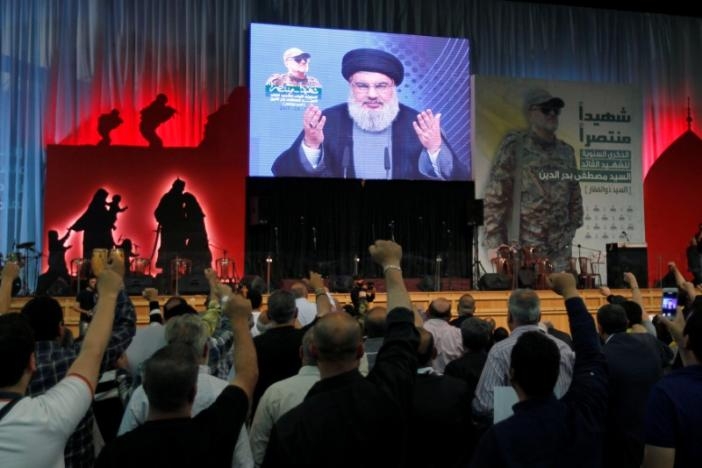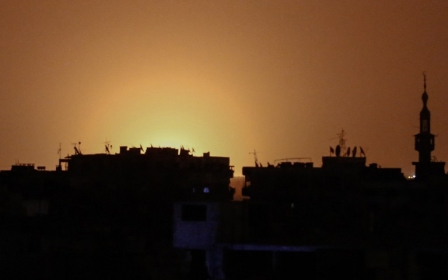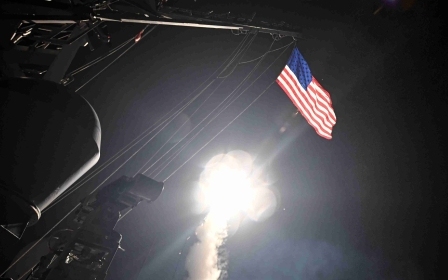Hezbollah leader warns of future war with Israel in Israeli territory

Lebanese Hezbollah said on Thursday that any future conflict between the Shia group and Israel could take place inside Israeli territory, at a time of high tension between the arch foes.
Hezbollah leader Sayyed Hassan Nasrallah also said in a live televised speech that the group had dismantled all its military positions along Lebanon's eastern border with Syria, and this area was now the "responsibility of the state".
Israel "is scared and worried of any future confrontation... and knows that it could be inside the occupied Palestinian territories," Nasrallah said.
Two Israeli air strikes against Hezbollah targets inside Syria in recent weeks have raised tension between the two.
Nasrallah also said the Syrian conflict had entered a new phase, without elaborating, but added that any opportunity to halt the fighting in the country should be seized.
New MEE newsletter: Jerusalem Dispatch
Sign up to get the latest insights and analysis on Israel-Palestine, alongside Turkey Unpacked and other MEE newsletters
Middle East Eye delivers independent and unrivalled coverage and analysis of the Middle East, North Africa and beyond. To learn more about republishing this content and the associated fees, please fill out this form. More about MEE can be found here.




